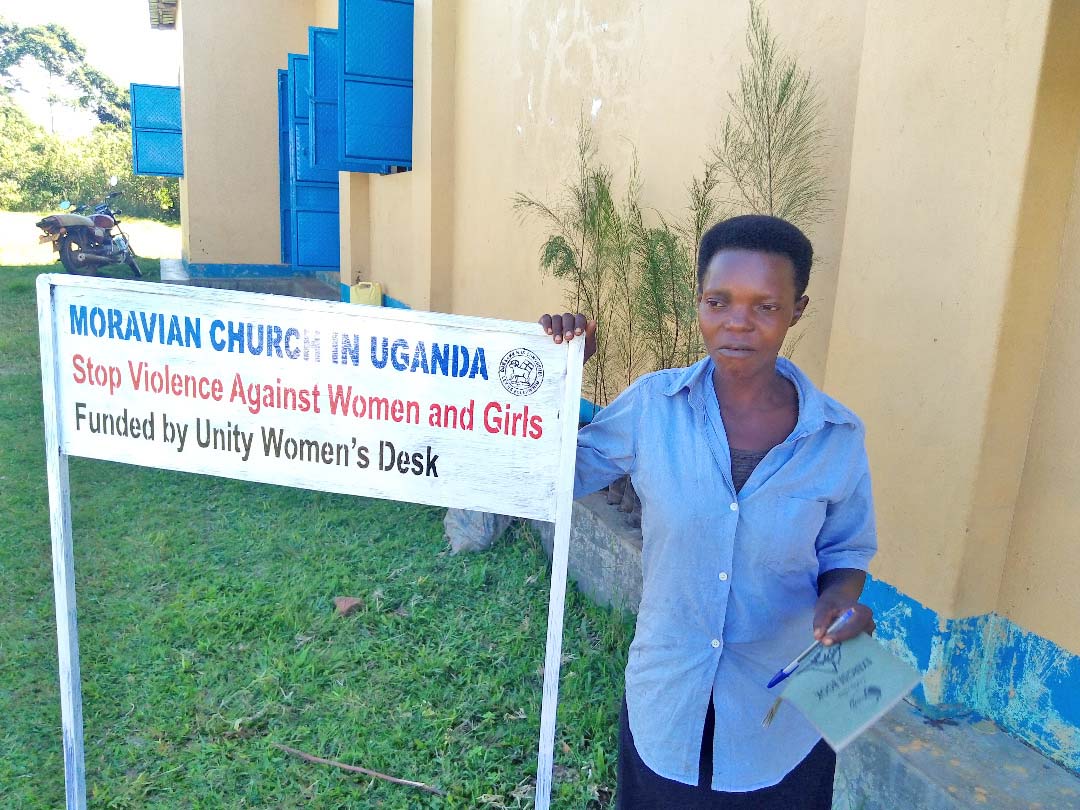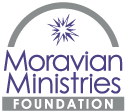
Your gifts to the Prevention of Violence Against Women Field of Interest Fund help protect and empower in Uganda.
By Lydian Bernhardt
The Unity Women’s Desk (UWD) is working hard to build a network of women around the Moravian world who can support each other, says Julie Tomberlin, coordinator of the Unity Women’s Desk ministry of the Moravian Church.
“It’s important to our mission to empower enough women to make an impact,” she says. “To do that, they have to reach out their hands and get to know each other. For example, we have Moravian nursing students in India, Tanzania, Jamaica, three in Honduras and two in Peru – all so similar and passionate in their call. I want them to know each other.”
The ministry is also very careful about accountability.
“Scholarship recipients have to send in a semester update online,” Tomberlin says.
Through the Moravian Ministries Foundation in America’s (MMFA) Giving Portal, prospective donors can give to many of the ministry’s areas of activity. The foundation also helps prospective donors set up donor-advised funds to contribute to UWD programs.
“What sets the UWD apart from other agencies and mission boards is that we answer directly to the Unity Board of the Moravian Church, and to a global advisory board that includes members from its four regions (African, Europe, Latin America/Caribbean, North American). We implement the programs the Unity Board of the worldwide church decides on – so every scholarship is a global decision approved by this global board,” Tomberlin says.
The ministry has six focus areas. All project requests must fall within the scope of education; violence prevention; employment and overcoming poverty; health issues in women and children; parenting for justice; women in ministry.
“It’s intended to be very grassroots. We receive applications and we give project grants, like the feeding program or conferences about prevention of violence against women.”
Violence against women, both physical and psychological, is the main topic that women from around the world bring forward when they come together at women’s conferences, Tomberlin says. For that reason, the ministry ranks it as one of its chief priorities.
 “A lot of men are working to stop violence against women, but they also admit that it’s just rampant. It’s not punished when it happens, even if the police are called. Education for the younger generation is the only thing that can truly eradicate it.”
“A lot of men are working to stop violence against women, but they also admit that it’s just rampant. It’s not punished when it happens, even if the police are called. Education for the younger generation is the only thing that can truly eradicate it.”
In Uganda, the ministry funded workshops educating both women and men about violence against women.
“We had facilitators from within our congregations and outside including Uganda Police and Human Rights and Economic Empowerment Development. We had a guest speaker from Uganda Christian Lawyers and Women councilors,” a grant recipient wrote Tomberlin.
“There is a team of 20 community volunteers who are responsible for spreading the news about violence against women and girls. I have been visiting them in their villages for the last two weeks to see how they are doing their work. We gave them T-shirts with a message condemning violence against women and girls.
“Each volunteer planted a tree on Moravian Church land to remember the conference. We also put posters in different villages with the message condemning violence against women and girls in both English and local language.”
For such a difficult topic, the UWD provides the financial support and encouragement, but not the programming, Tomberlin says.
“The grant recipients bring in their local experts, and there usually are some, because the topic is so culturally bound,” she says.
The violence against women focus area is the beneficiary of the Prevention of Violence Against Women Field of Interest Fund linked through the MMFA Giving Portal.
“We’re the voice of the Moravian Church in this area,” Tomberlin says. “In one country, a husband and wife pastoral team traveled all over the country doing workshops and using Biblical representations of Jesus engaging with women in a meaningful way. We want these women to know they’re also children of God.”






